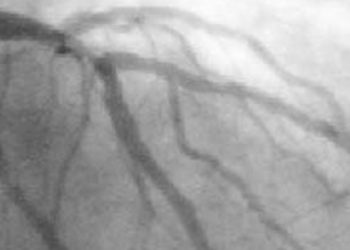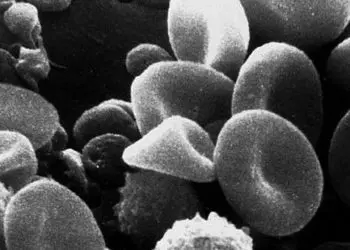Microplastics and nanoplastics linked to higher risk of cardiovascular events
1. In this prospective study, patients with carotid artery stenosis with microplastics and nanoplastics (MNPs) within the plaque had a higher risk of a composite of myocardial infarction, stroke, or death from any cause compared to those without MNPs.
2. Polyethylene was detected in the plaque of 150 patients (58.4%) and polyvinyl chloride was detected in 31 patients (12.1%).
Evidence Rating Level: 2 (Good)
Study Rundown: Microplastics, defined as plastic particles less than 5mm, and nanoplastics, defined as plastic particles less than 1μm, are becoming more ubiquitous with the increasing production of plastics. MNPs can enter the human body through various routes, including ingestion and inhalation, and are thought to promote oxidative stress and inflammation in endothelial cells. Previous studies involving preclinical models have posited MNPs as a risk factor for cardiovascular diseases and demonstrated their role in altered heart rate, myocardial fibrosis, and overall impairment of cardiac function. However, the clinical impact of MNPs remains in question. Hence, this prospective observational study utilized pyrolysis-gas chromatography-mass spectrometry, stable isotope analysis, and electron microscopy to analyze the presence of MNPs in carotid artery plaque and to determine whether patients with MNPs in their plaque had higher rates of cardiovascular events, cerebrovascular events, or death from any cause. Overall, patients with evidence of MNPs within the atheroma had a higher risk of a composite of myocardial infarction, stroke, or death from any cause at 34 months of follow-up compared to their counterparts in whom MNPs were not detected. Given that the study enrolled asymptomatic patients with carotid artery stenosis undergoing endarterectomy, its results may not be generalizable to symptomatic patients.
Click to read the study in NEJM
In-Depth [prospective cohort]: This prospective observational study investigated the presence of MNPs in carotid atheromas and their role in cardiovascular disease. Patients between 18 and 75 years of age with asymptomatic high-grade carotid artery stenosis (>70%) who were scheduled to undergo carotid endarterectomy were screened from August 1, 2019, to July 31, 2020. Following endarterectomy, patients were followed until July 1, 2023, to determine the incidence of non-fatal myocardial infarction, non-fatal stroke, and death from any cause. Specimens from the carotid plaque were analyzed using pyrolysis-gas chromatography-mass spectrometry to detect the presence of MNPs, and the results were verified using stable isotope analysis and electron microscopy. The patients were subsequently assigned to two groups – those with plaques in which MNPs were detected and those with plaques in which MNPs were not detected – whose primary endpoint was defined as a composite myocardial infarction, stroke, or death from any cause. Of the 312 patients who underwent screening, 257 completed a mean follow-up of 33.7 ± 6.9 months (± standard deviation). Among the patients who received follow-up, polyethylene was detected in the plaque of 150 patients (58.4%), and polyvinyl chloride was detected in the plaque of 31 patients (12.1%). The patients who had plaques with polyethylene exhibited a mean level of 21.7 ± 24.5 μg per milligram of plaque, and those who had plaques with polyvinyl chloride exhibited a mean level of 5.2 ± 2.4 μg per milligram of plaque. Moreover, the primary endpoint occurred in 30 of 150 patients (20.0%) in the MNP group and in 8 of 107 patients (7.5%) in the non-MNP group (hazard ratio, 4.53; 95% confidence interval, 2.00 to 10.27; P<0.001). In summary, among patients with high-grade asymptomatic carotid artery stenosis, those with evidence of MNPs in the carotid atheroma had higher rates of a composite of myocardial infarction, stroke, or death from any cause compared to those without evidence of MNPs at 34 months.
Image: PD
©2024 2 Minute Medicine, Inc. All rights reserved. No works may be reproduced without expressed written consent from 2 Minute Medicine, Inc. Inquire about licensing here. No article should be construed as medical advice and is not intended as such by the authors or by 2 Minute Medicine, Inc.







